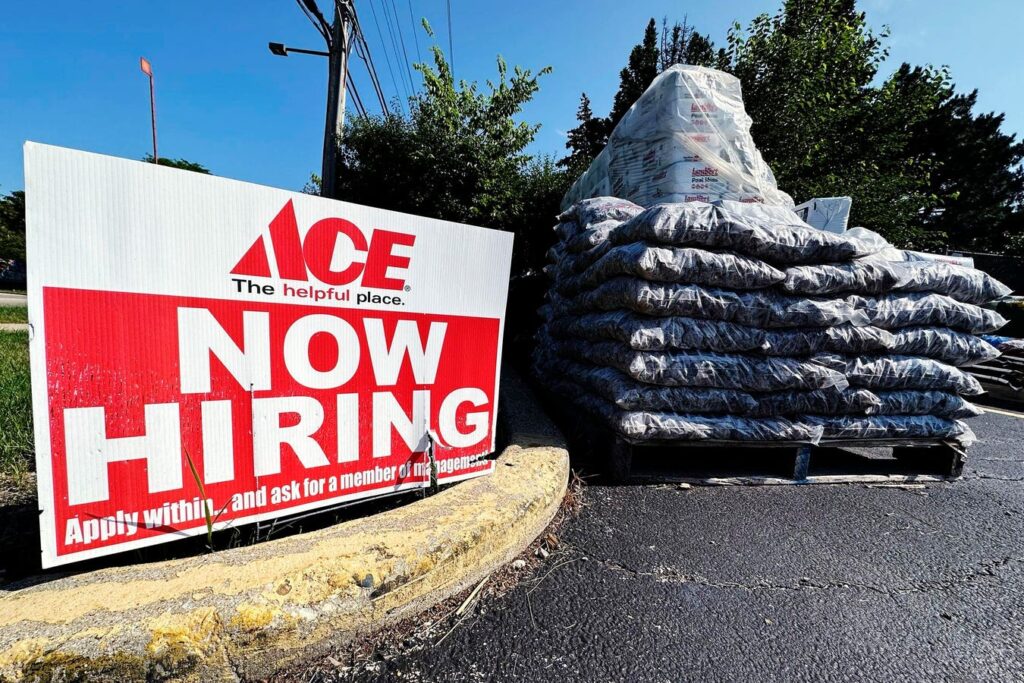Middle-market companies saw “robust” levels of revenue growth in the second half of 2023, but are “cautiously optimistic” about the coming year, according to a survey released last week by Chubb and the National Center for the Middle Market (NCMM).
The report surveyed 1,000 executives from middle-market companies, a group of American businesses with annual revenues between $10 million to $1 billion. There are about 200,000 middle-market firms in the U.S., mostly privately owned or closely-held, according to Investopedia, an online encyclopedia for the financial services sector. When publicly traded, middle-market companies trade as small-cap stocks which are companies with a market value between $250 million to $2 billion, or micro-cap stocks, which have market values below $250 million.
About 77% of the companies reported improved performance in 2023, up from 72% in 2022, a record high for the annual survey.
“Middle-market companies are a bellwether for the overall health of the U.S. economy, and our survey shows they are posting record growth,” said Ben Rockwell, division president, Chubb Middle Market.
Companies with revenues between $50 million and $100 million saw unprecedented levels of growth last year, on average 12.4%, but going forward many middle-market companies anticipate a one-third reduction in revenue growth, projecting an average of 8.1% growth this year, said the survey. Still, 73% of the companies said they have a high level of confidence in the national economy.
“I think employment and retail sales are the biggest drivers of economic strength and aggregate demand,” said John Maloney, chief executive officer of M&R Capital Management. “And they have been consistently stronger than economic consensus.”
Despite declining throughout 2023, employment growth remained higher than before the pandemic. During the fourth quarter, employment growth levels declined for middle-market companies of all sizes to 9.6%, compared with 11.1% in the same quarter of 2022.
Since the pandemic ended, companies have faced significant workforce challenges with hiring and retaining talent. For the next 12 months, the executives predict employment growth to average 8.7%, said the survey.
Even as large companies broke their uptrend for first time since 2020, employee recruitment, retention, and turnover has become a bigger challenge for smaller middle-market companies than larger ones.
While there has been a pullback in companies expanding their businesses this year, still 61% expect to launch a new product or service, 55% expect to expand into a new domestic market, and 42% expect to add a new plant of facility. In addition, 34% of the companies are testing out ways to use artificial intelligence (AI) in their business.
The survey said, “Inflation remains a prominent concern and will likely persist due to rising labor costs and Middle East conflicts affecting trade routes.” The companies said they plan to fight inflation and higher interest rates by raising prices. Nearly two in five companies expect to increase prices and further integrate AI applications into their businesses,” said the survey.
Beyond economic and employee retention risks, the executives said competitiveness, supply chain issues, new regulations, and cyber security continue to be significant risks. Other big concerns include the stability of the banking system, litigation, catastrophic incidents, and finally, access to — and cost of — credit and capital.
Most of the companies said they have become more confident in their ability to manage many risks. Still, of the firms surveyed, 59% said they found it extremely challenging to manage inflation risk; 49% found it challenging to manage recession risk; and 47% found talent retention very challenging.
Since Chubb is an international insurance provider it asked the executives about their insurance plans. The survey said, “Nearly three-fourths of the companies will consider increasing their insurance coverage” in response to the higher costs of replacing assets due to inflation.
Many of the middle-market companies recognize there are gaps in their insurance coverage and preparedness.
“In addition to potentially being underinsured for inflated property and equipment values, companies often underestimate the time it will take to get back up and running after an insured loss, which points to the need for adequate business interruption coverage and more thorough and realistic business continuity plans,” the survey concluded.
Only half the companies said that they are completely or very prepared for disruptions such as fire/water damage, catastrophic incidents, and aging infrastructure. Meanwhile, the top concern factoring into companies’ insurance purchasing decisions is cyber security.
“Fewer than half of companies (47%) believed they had adequate cyber insurance, while more than half (52%) acknowledged that they needed …. coverage,” according to the survey.
Read the full article here
















